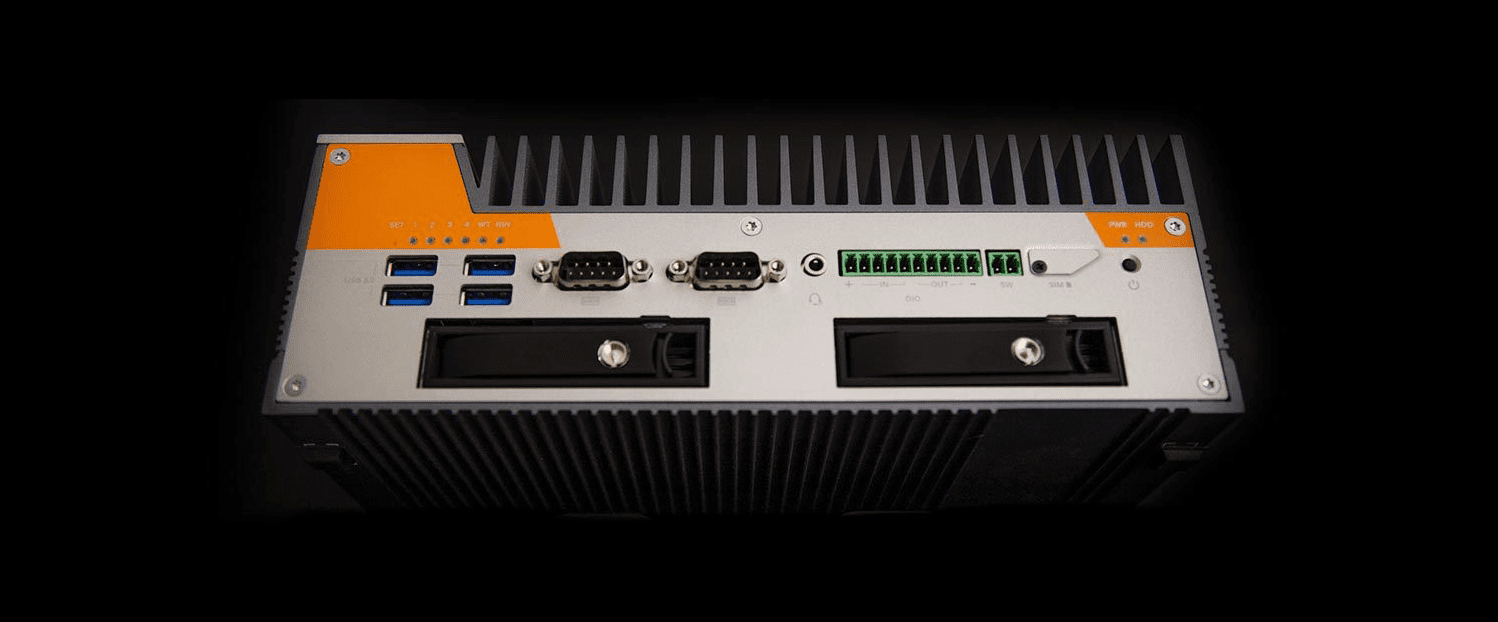
OnLogic (formerly Logic Supply) is a global industrial PC company focused on hardware for the IoT edge, designing highly-configurable computers engineered for reliability. Their systems operate in the harshest environments and power innovation in the evolving Internet of Things. Fueled by a unique direct-to-customer business model that combines vertical integration, modular product design and a powerful online platform, OnLogic offers computers “designed to last, built to order, and delivered in days.
The thermal requirements that OnLogic set out to meet for their Karbon 700 high-performance, rugged edge computer system were beyond any that they had ever tried to achieve before. Reliability and accuracy were paramount in their development process.
Yet, time was their biggest enemy. The OnLogic team set aggressive targets for development milestones, and needed to ensure efficiency in every aspect of the project. They had great success with other calculation and simulation methods in previous product developments, but wanted to add a greater level of flexibility. The ability to make quick design iterations was critical to this project.
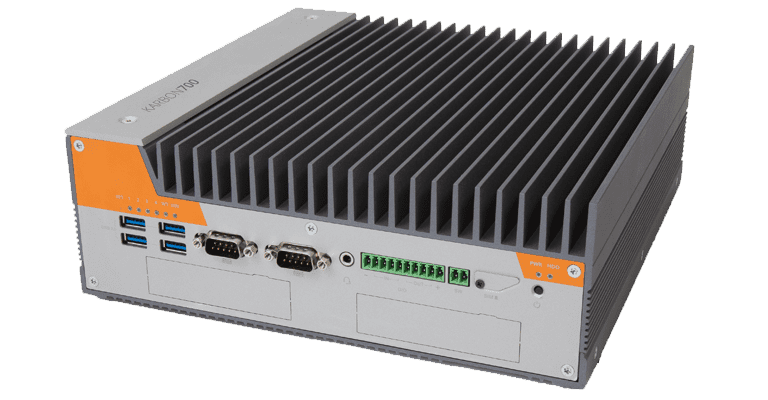
The OnLogic team chose to use CAE to achieve faster iterations, a better understanding of the impact of design features, and the ability to quickly and accurately attribute test results directly to design changes. SimScale provided the repeatability and insight into the impact of small design changes needed to achieve the best possible thermal performance.
Our overall impression of working with SimScale on our project is two thumbs way up. We're already using it on new projects, and expect SimScale to be part of all future product developments.

Erick Kopff
Engineer
Initially the team had little experience with the software, so they were concerned about it impacting their development time. However, the team found that the platform was intuitive and, with support from SimScale, made it easy to incorporate the simulations into their workflow. SimScale’s library of publically-available projects gave them the ability to study and learn from a wide array of examples.
SimScale offered three, one-hour training sessions on the software which went a long way toward bringing the OnLogic team up to speed. These courses included details on creating models that would be optimal for import. The SimScale on-call engineer was able to answer questions and even run sample simulations for them. The team could then access that simulation to see how he set it up and use it as a template for future simulations.
Additionally, having simulation data accessible to the entire team remotely let them collaborate more effectively and save on in-house computing needs. The cloud implementation of SimScale made it easy for the whole team to share resources.
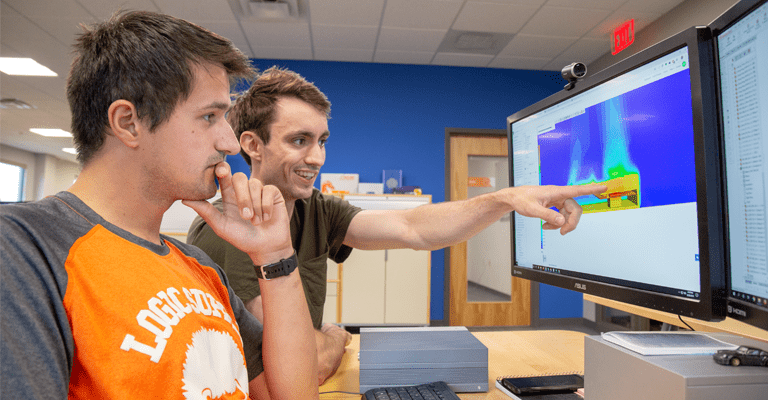
The team at OnLogic first generated a CAD model in Solidworks. Following this, they uploaded it onto the SimScale platform, and used a hex-dominant internal mesh. They then tested multiple heat sources and evaluated the thermal performance of their chassis in a low-airflow environment, designing the simulation for a worst-case installation scenario.
They wanted to generate a number of different iterations of the same simulation to observe how variance in mechanical design would impact thermal performance. For their Karbon 700 simulations, they used conjugate heat transfer.
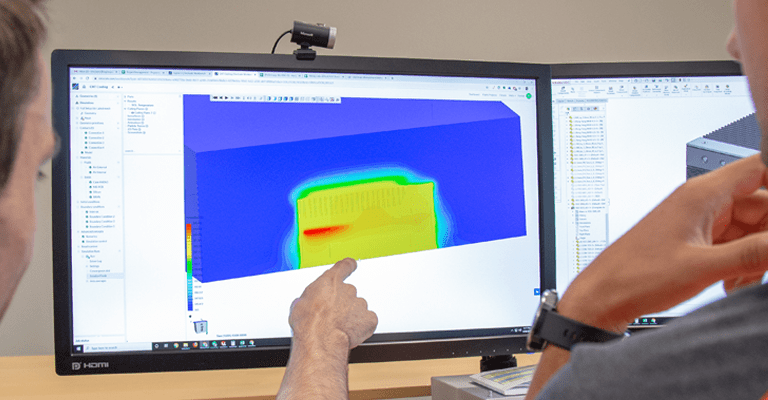
The team ran 3-5 mechanical design iterations in parallel within a week on this particular project, and a simulation took no more than 12 hours. Sometimes they ran simulations overnight, and the cloud architecture even allowed them to occasionally start or make adjustments to simulations from home if necessary.
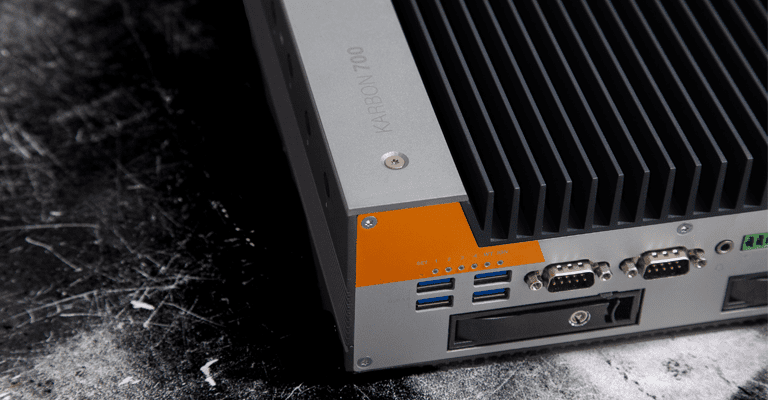
OnLogic ended up within roughly 95% accuracy of actual product testing performance. As a result, they were able to implement a design feature that gave them the same thermal results as a different design feature, but saved significant manufacturing costs by using less material. Estimating a $3 per-system cost saving on thousands of units, SimScale allowed OnLogic to save tens of thousands of dollars in materials costs, including adjustments to chassis extrusions and cooling solutions. Additionally, SimScale helped OnLogic save R&D time and employee development costs.
With SimScale, OnLogic got a platform to help them be more efficient in their development workflow, get more done faster, and make decisions on design changes quickly. Even better, They used the support of the experts at SimScale, who they said felt like an extension of their own team.
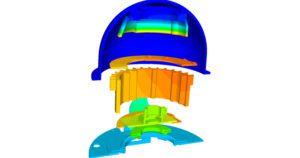
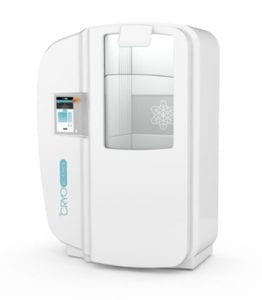
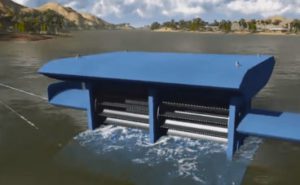
Sign up for SimScale
and start simulating now